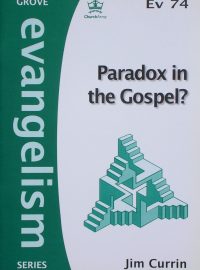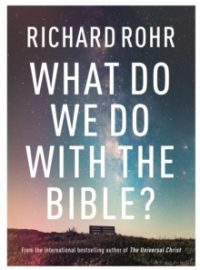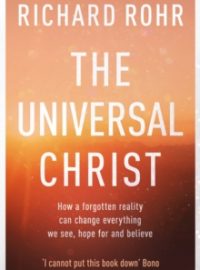-


Paradox in the Gospel
Culture & Mission, Scripture & PrayerLife and the gospel contain a good deal of paradox, but a survey has showed that evangelists often ignore it. Here Jim Currin wants to stir a discussion to make evangelism more effective, in the belief that acknowledging paradox makes the gospel more exciting, relevant, and attractive to today's spiritual seeker.£4.95 -


Reading the Bible with the Damned
Leadership, Scripture & Prayer, Spiritual Growth, The Inner JourneyExploring the challenges that both the churched and the unchurched have faced regarding giving and receiving the word of God, Bob Ekblad encourages us all to learn to read the Bible together as a whole. In this compelling book, he reflects on how Christians have often found it difficult to proclaim God's good news to every realm of society, while those who have needed it most have frequently deemed themselves unworthy due to social circumstances or sinfulness. In Reading the Bible with the Damned, Ekblad offers concrete advice on how to bridge this gap through a variety of insights ultimately leading to spiritual transformation. This book is full of examples of how Scripture changes lives for those who attend Bible studies and for those who lead them, offering practical suggestions on many passages from the Old and New Testaments.£23.99 -


What Do We Do With the Bible?
Scripture & Prayer, Spiritual Growth, The Inner JourneyWhat do we do with the Bible? Does this ancient, sometimes violent and contradictory text have anything to teach us today? Selective use of Scripture - by preachers and politicians alike - has been employed to justify violence, racism, misogyny, homophobia . . .the list goes on. Still, we believe the Bible has something important to say. How can we read it in a contemplative and intelligent way? In "What do we do with the Bible?", Richard Rohr answers just this question. He offers a methodology of hermeneutics (interpretation) that creates a foundation for a hopeful and cosmic vision - incarnation from beginning to end of time. (He explores this vision further in The Universal Christ). In particular, Father Richard focuses on Jesus' own method of using his Hebrew Scriptures. Jesus read between the lines to find and follow God's mercy, inclusion, and compassionate justice. For him, everything came down to relationship and transformation.£9.99 -
Sale


£12.00Original price was: £12.00.£5.00Current price is: £5.00.Obtainable Expectations; a timely exposition of the Sermon on the Mount
Scripture & PrayerObtainable Expectations shows the reader how to apply the principles of the Sermon on the Mount in one's life and ministry.£12.00Original price was: £12.00.£5.00Current price is: £5.00.£12.00Original price was: £12.00.£5.00Current price is: £5.00. -


The Universal Christ : How a Forgotten Reality Can Change Everything We See, Hope For, and Believe
Scripture & Prayer, Spiritual Growth, The Inner JourneyAcross the 30,000 or so varieties of Christianity, believers universally love Jesus. They have no trouble accepting his humanity and his divinity. Many express intimations of his close presence in their lives; a fear of his judgment and wrath as well as a love of his compassion; a justification for their worldviews and politics (of all persuasions), and firm convictions about his atonement for their sins and thus his centrality in their personal salvation. But who is Christ? Is Christ simply Jesus's last name, denoting his role as saviour of humanity, as messiah? What is Christ? How is his function or role different from Jesus's? Are we missing something fundamental because of our overwhelming emphasis on Jesus to the exclusion of the Christ, or our misunderstanding of what it means that Jesus was `the Christ'? Could it be that such limited views are contributing to the slow and painful erosion of Christianity in western culture, to its insularity and insistence on purity and exclusion? These are questions Fr Richard Rohr has been pondering for many years. In his ecumenical and scripturally grounded books on contemplation, mysticism and many more topics, he has emphasized the importance of a large framework for understanding the nature of 'what is' and what lasts, of unity and the ultimate reality of God's presence in all of creation-Christian and non-Christian, human and non-human. Could it be that Jesus, who is the Christ, is offering us a model and example on how to live inside `this Big Frame?'£10.99 -


Speaking of Sin
Scripture & Prayer, Spiritual GrowthIn Speaking of Sin, Barbara Brown Taylor brings her fresh perspective to words that often cause us discomfort and have widely fallen into neglect: sin, damnation, repentance, penance, and salvation. Asking why we should speak of sin at all, she argues that abandoning words will not make sin go away, and that alienation, deformation, damnation and death will continue no matter what we call them. Abandoning the language will simply leave us speechless before them, and increase our denial of their presence in our lives. Ironically, it will also weaken the language of grace, since the full impact of forgiveness cannot be felt apart from the full impact of what has been forgiven. Contrary to the prevailing view, Taylor calls sin “a helpful, hopeful word.” Naming our sins, she contends, enables us to move from guilt to grace. In recovering this lost language of salvation in our worship and in the fabric of our individual lives, we have an opportunity to take part in the divine work of redemption.£10.99
